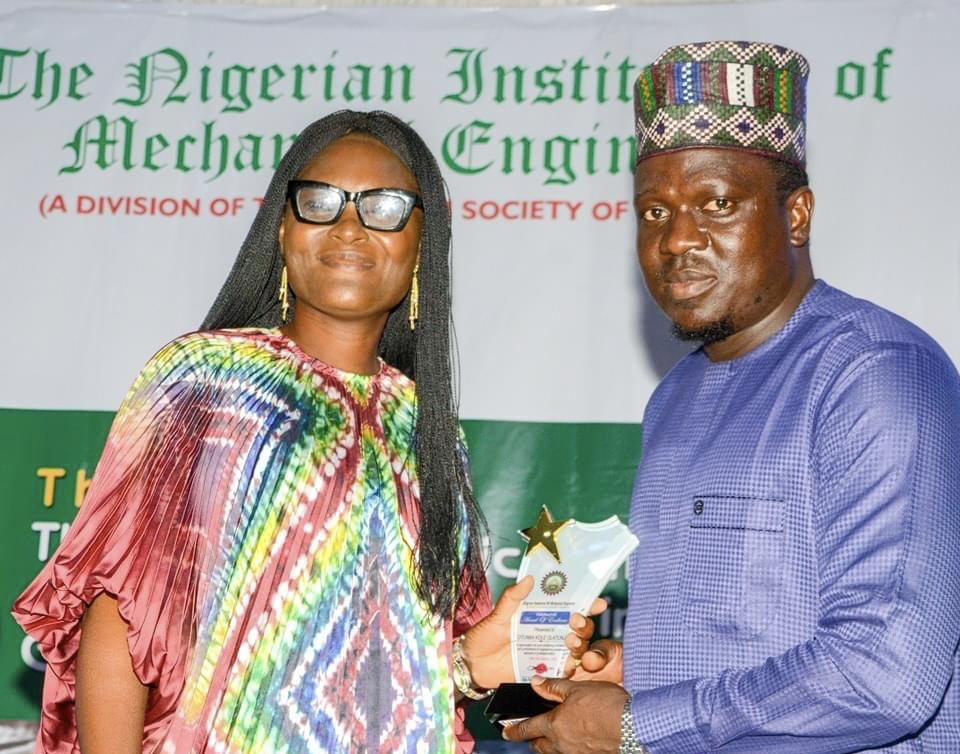Experts in engineering in the country have said that patronage of indigenous engineers remains a key factor that will galvanize homegrown development for the country.
Speaking at one of the events marking the inauguration of Engineer Suleiman Yahaya as chairman of the Ilorin chapter of the Nigerian Institution of Mechanical Engineers (NIMechE), the immediate past Kwara state commissioner for Works, Engineer Rotimi Iliasu, called on governments and corporate organizations to encourage local engineers with greater patronage.
Engineer Iliasu, who identified lack of trust and funding as a major reason for not patronizing Nigerian engineers before now, said that no one would want to do trial and error on projects.
Participants at the induction ceremony held in Ilorin, Kwara State
He, however, said that there has been improvement in patronage in recent times with the appointment of qualified engineers as aides of both state and federal governments.
“These are testimonies that we would see more happening in the nearest future. We have the commitment as Nigerians. I will also say that we need to participate more in government. It’s the very key. If we don’t participate there may not be patronage.
“We have also embarked on processes to encourage patronage with knowledge sharing, partnership with foreign bodies and training of young engineers. There’s a lot going on in the country and a lot that Nigerian engineers can do. So, when you talk about challenges, it’s more of getting those patronage. Now, we’re seeing more of it and in the nearest future we’ll see local engineers, local companies, taking part in building the Nigeria that we all want”, he said.
In his address as the guest speaker at the event, the immediate past Works commissioner in Kwara state, Engineer Rotimi Iliasu,
Talking on the topic, “Infrastructure Development and Mechanical Engineering Innovation: Forging a Resilient and Sustainable Future for Nigeria”, Engineer Iliasu said that as Nigeria advances, contributions of mechanical engineers will be indispensable to build a resilient and sustainable future for Nigeria.
“Their capacity for innovation and problem-solving holds the key to economic growth and an improved quality of life for Nigerians. To the newly inducted graduate mechanical engineers, I encourage you to build your careers in Nigeria. With dedication and hard work, you can become leaders in your field, and in doing so, you will contribute not only to your own personal advancement but to the overall development of Nigeria.
“If we all choose to leave (“japa”), who will develop our country?
Through the adoption of new technologies, commitment to research, and collaboration with other disciplines, mechanical engineers can drive innovation,
create employment opportunities, and improve the standard of living for all Nigerians. Together, we can shape a brighter future for Nigeria through the field of mechanical engineering”, he said.
Also speaking, the national chairman of the Nigerian Institution of Mechanical Engineers (NIMechE), Dr. Mrs. Funmilade Akingbagbohun, said that the institutions, in partnership with an Italian firm, is set to commence training of over 100 mechanical engineers to work on conversion of petrol engine to compressed natural gas (CNG) engine for automobiles.
Akingbagbohun said that Nigerians needed to have alternative to hardship brought about by removal of fuel subsidy.
“With the proposal of the federal government to embark on the conversion of petrol engine to CNG engine following the removal of fuel subsidy, we are set to commence training of our engineers on the project with the partnership of Italian company. We have a selection process for it, where multiple text exams would be used and whoever comes top would go for the training in Nigeria here.
“We’re also partnering with Toyota company in training of our engineers in the automobile industry. We’re also partnering with the Automotive Design and Development Council in terms of electric vehicles in Nigeria”, she said.
The NIMechE national chairman, who said that the training project would start with about 100 beneficiaries, added that the second stage would be a sort of train the trainers, “where we would be able to help people establish places and workshops where they would have this conversion being done.
“The first stage of the training would be done locally with our partnership company bringing in the trainers and kits for the conversion for our own engineers”.
The event also witnessed the induction of graduate members, comprising over 50 graduates of Mechanical Engineering of the University of Ilorin into the institution and the presentation of awards to distinguished members of the group.
